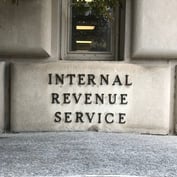What You Need to Know
- U.S. life insurers ended 2020 with $2.1 trillion in corporate bonds and just $208 billion in municipal bonds.
- Under S1308, the Treasury Dept. would help state and local governments pay higher rates on eligible taxable bonds.
- The ACLI, SIFMA and the Insured Retirement Institute all support the bill.
Republicans and Democrats are working together on a bill that could encourage life insurers to invest in efforts to build and maintain bridges, tunnels, subways and renewable energy programs.
Sen. Michael Bennet, D-Colo., talked about S1308, the “American Infrastructure Bonds Act of 2021″ bill, at a hearing on infrastructure financing Tuesday that was organized by the Senate Finance Committee.
The bill could help state and local governments issue taxable municipal bonds, to attract cash from life insurers, pension plans and IRA holders for infrastructure projects.
Senators and witnesses spent much of their time at the hearing discussing options for increasing and using federal revenue.
But Sen. Ron Wyden, D-Ore., the committee chairman, did talk about the Build America Bond program in his opening remarks. Congress created that taxable infrastructure bond program in 2009, in response to the 2007-2009 Great Recession. The goal was to rush money to “shovel ready” construction projects.
“It was completely bipartisan,” Wyden said.
He recalled estimating that the program might succeed at issuing about $3 billion to $5 billion worth of bonds.
“In a year and a half, it sold $182 billion worth of bonds,” Wyden said. “That’s an example of a public-private partnership coming together.”
Taxable Bonds vs. Tax-Exempt Bonds
Today, state and local governments borrow money mainly by issuing tax-exempt municipal bonds.
Investors who normally do have to pay income taxes on investment earnings buy the bonds to earn a steady income while holding down their tax bills.
Corporations and some other buyers issue taxable bonds. Those bonds typical pay higher interest rates than tax-exempt bonds, because investors subject to income taxes must pay taxes on their bond income. Life insurers, pension plans and IRA holders typically focus on investing in taxable bonds because they like getting higher yields, and they need not pay taxes on the earnings while they hold the bonds in their portfolios.
U.S. municipal bond issuers have about $3.9 trillion in municipal bond value outstanding, according to the Municipal Securities Rulemaking Board.
Figures from the Securities Industry and Financial Markets Association (SIFMA) show U.S. corporate bond issuers have about $46 trillion in corporate bond value outstanding.
U.S. life insurers ended 2021 with $2.1 trillion trillion in corporate bond holdings and just $208 billion in municipal bond holdings.









 May 19, 2021 at 01:47 PM
May 19, 2021 at 01:47 PM











